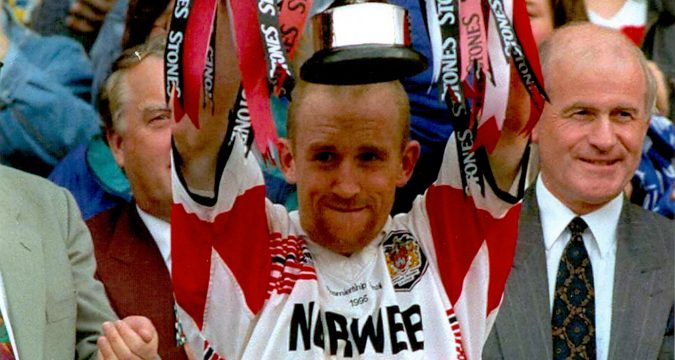 After the announcement of Shaun Wane's departure from Wigan Warriors at the end of 2018 was announced at the beginning of this week, speculation has continued as to whether Shaun Edwards could be the man to take over for 2019 and beyond.
Only last month, Edwards went on record in League Express describing his "burning ambition" to manage in Rugb
After the announcement of Shaun Wane's departure from Wigan Warriors at the end of 2018 was announced at the beginning of this week, speculation has continued as to whether Shaun Edwards could be the man to take over for 2019 and beyond.
Only last month, Edwards went on record in League Express describing his "burning ambition" to manage in Rugb Rugby League Heroes: Shaun Edwards
 After the announcement of Shaun Wane's departure from Wigan Warriors at the end of 2018 was announced at the beginning of this week, speculation has continued as to whether Shaun Edwards could be the man to take over for 2019 and beyond.
Only last month, Edwards went on record in League Express describing his "burning ambition" to manage in Rugb
After the announcement of Shaun Wane's departure from Wigan Warriors at the end of 2018 was announced at the beginning of this week, speculation has continued as to whether Shaun Edwards could be the man to take over for 2019 and beyond.
Only last month, Edwards went on record in League Express describing his "burning ambition" to manage in Rugb 